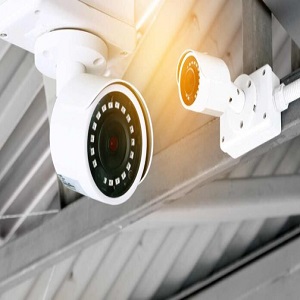Concerns have occasionally been expressed regarding their potential impact on the functionality of the human brain in light of the proliferation of CCTV (Closed-Circuit Television) cameras in both public and private areas. This blog provides evidence-based insights into the topic and dispels common misconceptions about CCTV and its alleged effects on cognitive health.
Grasping CCTV Frameworks
CCTV frameworks are generally utilized for reconnaissance and security purposes. They are made up of cameras that record video and send it to a monitoring station or store it for later review. CCTV innovation has developed essentially, offering improved abilities like top quality video, remote checking, and progressed investigation.
Addressing the Myth Rather than relying on scientific evidence, the notion that CCTV monitoring services cameras impair brain function is based on misconceptions and unfounded fears. There are a few things to think about:
Observation Passive: CCTV cameras record video footage of public areas or specific locations as passive observers. They do not give off signals or radiation that could have a direct effect on how the brain works.
No Personal Contact: CCTV cameras do not engage with individuals in a manner that could influence cognitive processes, in contrast to technologies like smartphones and computers, which require active engagement and interaction.
Effect on mental health: There is no evidence to suggest that CCTV cameras diminish cognitive abilities like memory, decision-making, or problem-solving, despite the fact that constant surveillance may in some cases give the impression of being watched and cause psychological stress.
Benefits for Public Safety: CCTV frameworks add to public wellbeing by preventing wrongdoing, supporting criminal examinations, and advancing a conviction that all is good openly spaces. The unfounded concerns about the effects on cognitive health are outweighed by these advantages.
Mental Wellbeing and Innovation
It is fundamental to separate between the impacts of best commercial CCTV systems and different elements that can truly impact mental wellbeing:
Screen Time: Sleep patterns, attention span, and cognitive development can be affected by excessive screen use, especially in children and adolescents.
Stress and Tension: Mental health and cognitive function can be affected by constant exposure to stressful situations or environments, whether related to surveillance or not.
Keeping up with Equilibrium
While CCTV cameras themselves don’t represent an immediate danger to mind usefulness, it is vital to keep a fair way to deal with innovation use and observation rehearses:
Privacy issues to consider: Make sure that CCTV systems are used in a responsible manner and in accordance with ethical and legal guidelines regarding data protection and privacy.
Awareness and instruction: Advance comprehension of the advantages and limits of CCTV innovation among the general population to reduce outlandish worries.
Conclusion
There is no scientific evidence to support the claim that CCTV cameras impair brain function. Without compromising cognitive health, these surveillance tools improve public safety and security in important ways. When assessing claims regarding the effects of technology on human well-being, it is absolutely necessary to rely on empirical evidence and apply critical thinking. We can encourage informed discussions and decisions regarding the use of CCTV systems in contemporary society by addressing misconceptions and focusing on factual information.

